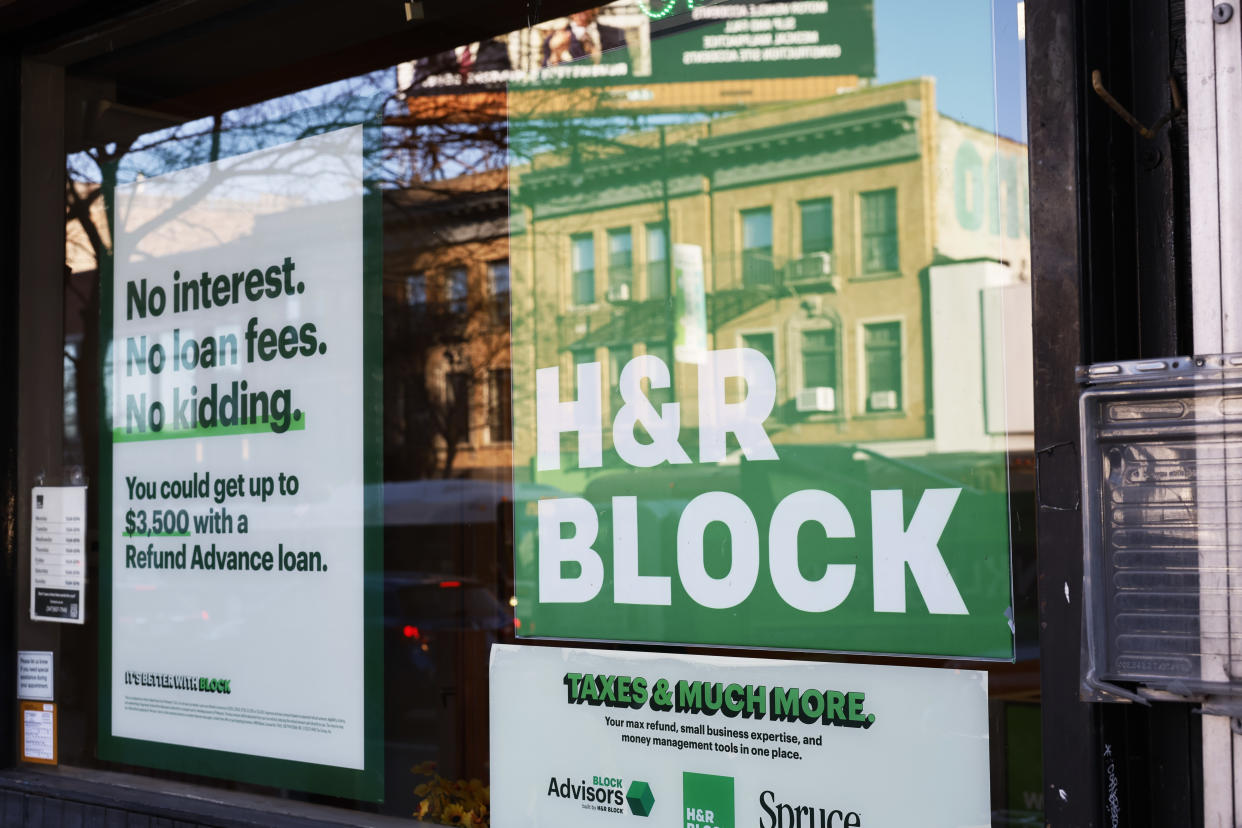Customers spent hours inputting their info. HR Block deleted it as a sales tactic, FTC says.
One tax prep giant is making your tax filing more difficult on purpose, the Federal Trade Commission says.
The consumer protection agency sued H&R Block, alleging the company coerced consumers to pay for services they didn’t need through deceptive marketing practices.
The FTC’s complaint alleges that H&R Block made it more difficult for consumers to choose a lower-cost or free online filing package, frequently changed its own definition of a simple tax return, and misled many into believing they qualified for free filing when they did not.
The complaint filed last week cites that the company also "upsold pricier services without a clear breakdown of costs," and if the consumer wanted to downgrade, they would have to contact customer support. Then, all of their tax data would be wiped — forcing them to "start from scratch" after hours of inputting data.
The tactic created a "significant disincentive to downgrading," the FTC said.
According to the agency, taxpayers attempting to downgrade since around 2014 have had to contact H&R Block directly. By contrast, the upgrade process, where a consumer opts for a more expensive product, has been seamless.
H&R Block responded to the FTC complaint:
"We believe we provide our clients with a great deal of value, unmatched tax expertise, and fair and transparent pricing," Dara Redler, chief legal officer for H&R Block, said, adding that the company "allows consumers to downgrade to less-expensive DIY products via multiple mechanisms."
The FTC has been targeting major tax prep companies in recent years over deceptive marketing of free services or products, often a lure to consumers who are subsequently slammed with overpriced charges.
"H&R Block designed its online products to present an obstacle course of tedious challenges to consumers, pressuring them into overpaying for its products," Samuel Levine, director of the FTC’s Bureau of Consumer Protection, said in a statement. "Companies using coercive techniques that harm consumers can expect to hear from the FTC."

FTC cracks down on TurboTax
The lawsuit against H&R Block comes barely a month after the FTC cracked down on TurboTax maker Intuit Inc., claiming the tax prep company misled consumers through its ads for "free" tax products and services. In truth, the FTC said, the majority of consumers were ineligible.
The FTC ordered Intuit to stop advertising any free products and services unless they were free for all consumers — or unless the company discloses the percentage of consumers that don't qualify for unpaid offerings in their ads.
Intuit spokesperson Derrick Plummer called the opinion "deeply flawed" in a statement and said the company was appealing the FTC’s decision in federal court.
"There is no monetary penalty in the FTC’s order, and Intuit expects no significant impact to business," Intuit said in a statement. "Intuit has always been clear, fair, and transparent with its customers and is committed to free tax preparation."

It’s not the first time TurboTax has been in hot water.
Last May, roughly 4.4 million people received checks from TurboTax, following a 50-state $141 million settlement with the FTC for allegedly driving low-income Americans away from free-filing services for years. Most customers received $30, while those who filed for three consecutive years got up to $85.
In New York alone, Intuit paid $5.4 million to more than 176,000 residents who were tricked into paying to file their federal tax returns, New York attorney general Letitia James said.
IRS offers free filing options
If you’re looking for options to file your taxes for free, the Internal Revenue Service has a few services available that only require taxpayers to sign up online.
For instance, if your adjusted gross income for 2023 was $79,000 or less, you can use the IRS Free File to file your federal tax returns this season. Those who don’t qualify can use Free File Fillable Forms to simplify your tax filing process.
Read more: 7 ways to file your taxes for free
The IRS is also piloting a new fax filing service known as Direct File for simple returns. The pilot program is available to folks who lived in these states in 2023: Arizona, California, Florida, Massachusetts, Nevada, New Hampshire, New York, South Dakota, Tennessee, Texas, Washington, and Wyoming.
Those who don’t qualify for the IRS Direct File program include taxpayers with earned income from gig work, businesses, or who have itemized deductions or claim credits like the child and dependent care credit, saver’s credit, or premium tax credit, the IRS noted.
Gabriella Cruz-Martinez is a personal finance and housing reporter at Yahoo Finance. Follow her on X @__gabriellacruz.
